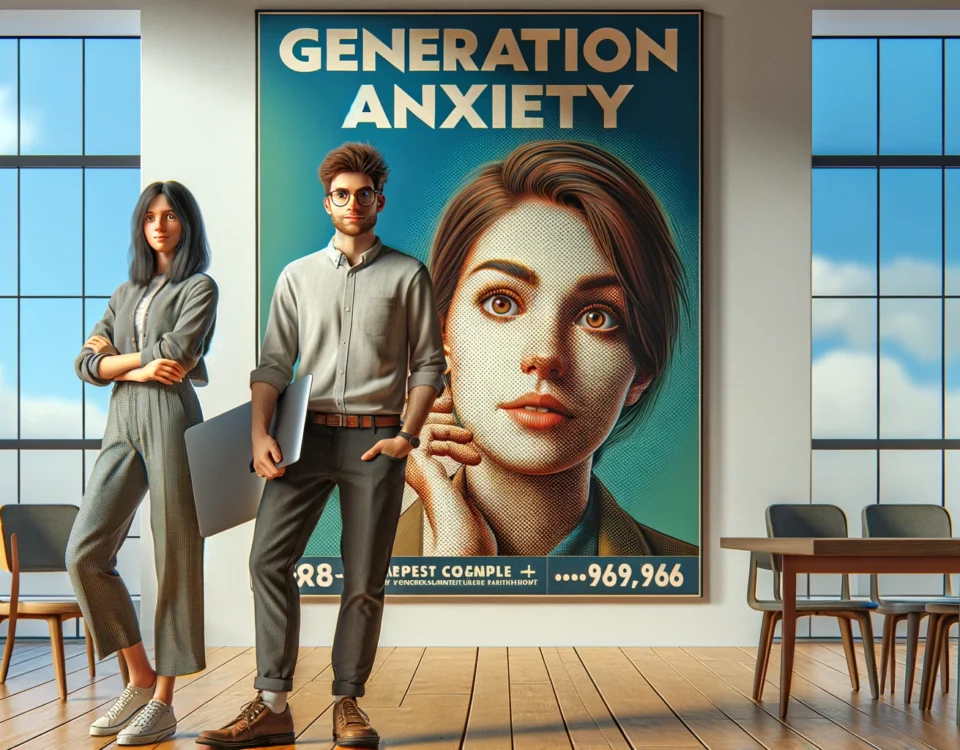
03. There are Multiple Paths to Anxiety freedom

Introduction to Generation Anxiety
The Origins of Your Anxiety.
Anxiety is a common experience for many people, and understanding its roots can be both complex and enlightening. Often, we consider the immediate triggers of anxiety, such as health concerns, symptoms we experience, or stressful situations. However, these factors only scratch the surface of why anxiety has become a persistent part of our lives for a long time.
Causes and Triggers of Anxiety
Professionals in the field of psychology and psychiatry point to several factors that contribute to the onset of anxiety:
– Genetic Factors: A family history of anxiety can increase one’s risk.
– Brain Chemistry: Imbalances in neurotransmitters can influence anxiety levels.
– Life Events: Stressful or traumatic experiences can trigger anxiety.
– Personality Traits: Characteristics like perfectionism or low self-esteem can make one more susceptible.
While most of these are valid causes and triggers, they don’t explain why so many individuals continue to experience anxiety over the long term.
The Role of Fear in Sustaining Anxiety
Our data and observations suggest that a significant factor in ongoing anxiety is the fear of experiencing anxiety itself. This fear creates a cycle where the primary goal becomes avoiding the unpleasant feelings associated with anxiety.
Consider the actions many people take in response to anxiety:
– Seeking Medical Help: To prevent further symptoms.
– Taking Medication: To alleviate the discomfort.
– Undergoing Therapy: To manage and reduce unpleasant feelings.
– Exposure Therapy (MCT): To lessen the impact of anxiety-inducing situations.
Each of these steps is taken with the intent to avoid the discomfort anxiety brings, rather than confronting the anxiety directly.
A Thought Experiment: The Nature of Anxiety
Imagine for a moment that the sensations of anxiety were not unpleasant.
If the symptoms didn’t cause discomfort, would there still be a need to seek out doctors, medications, or therapy?
This hypothetical scenario challenges us to reconsider our relationship with anxiety and the feelings it evokes.
Reflection and Discussion
The statements provided above are designed to provoke thought and encourage a deeper examination of your own experiences with anxiety.
– Do you find these ideas challenging or confirming your views on anxiety?
– Is it possible that the avoidance of anxiety’s discomfort is a key factor in its persistence?
– Based on your experiences, how do you understand the role of fear in anxiety?
Recording your thoughts and reflections on these questions, along with the date, can be a valuable exercise. It will offer insights when you revisit your thoughts in the future.
Conclusion
Understanding anxiety requires looking beyond the immediate causes and considering how our reactions to anxiety can perpetuate it. By examining our fears and how we respond to the discomfort anxiety brings, we gain deeper insights into our experiences and potentially find new ways to deal with anxiety more effectively.
This discussion opens up an important dialogue about how we view and manage anxiety. By understanding the underlying fears and perceptions that contribute to anxiety, we can begin to approach it in a way that promotes acceptance rather than avoidance by symptom treatments.
Reflecting on the role of fear in anxiety and considering alternative perspectives will be a powerful step toward understanding anxiety. What are your thoughts?





